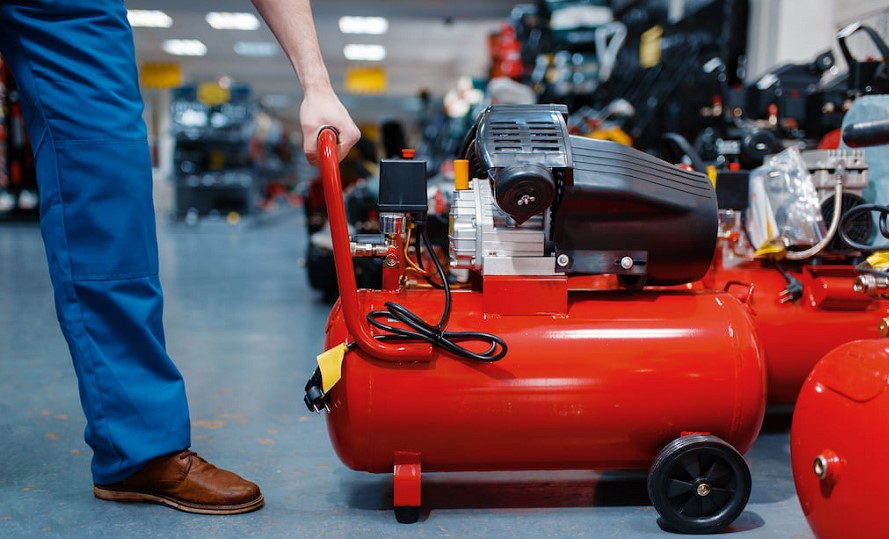An air compressor is a powerful tool that is used to convert power into energy, usually stored as compressed air.
To keep them operating efficiently, air compressors need special maintenance. The trouble-free and effective operation of air compressors can only be guaranteed by routine maintenance and inspections.
However, the compressor is a type of equipment whose use may result in a few issues.
Fortunately, the majority of air compressor problems can be resolved with the proper troubleshooting manual.
The following air compressor troubleshooting advice can assist in resolving some of the most typical issues that air compressors encounter.
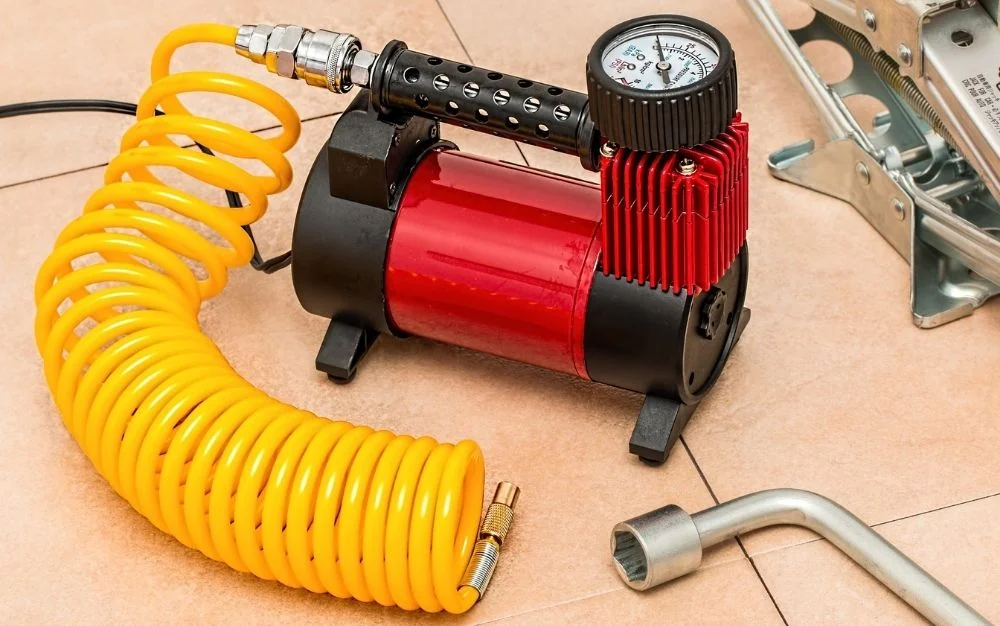
Contents
Air leakage problem
When you turn off your air compressor and notice that the pressure gauge registers a pressure drop, you can determine if it is leaking.
Listening to air leaks in an air compressor is the best way to find them.
You have an air leak if you hear a hissing sound as you pass hoses or connection points. What to do with them is as follows:
- Enlarge connections
An air leak can easily occur anywhere that can become loose. Bypassing your compressed air system is a good idea, and you should tighten all connection points frequently. Tighten any additional components you notice or feel may be loose.
- Replacement or repair of parts
Older replacement parts are a typical place to look for air compressor leaks. Old filters, worn-out lubricators, regulators, flanges, and leaky drains are frequently where air compressor leaks are discovered. Replace or fix these worn-out components as soon as you can, if at all possible.
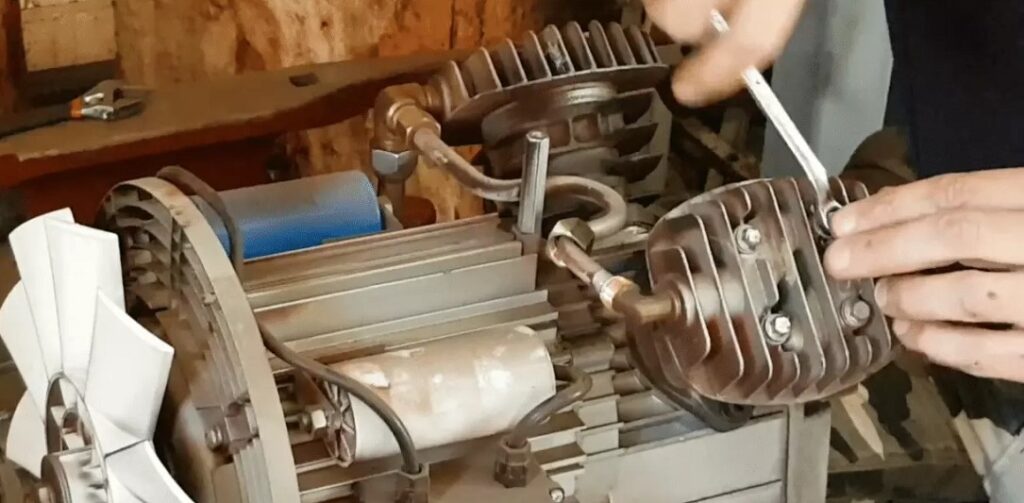
- Replace the hose and tube sections
Air hoses and tubes are other common places for air compressor leaks to occur. However, if you hear one and are having trouble finding it, try applying some liquid soap to the area. These air leaks can be more challenging to find. If you swap out the leaking hose or tube for a new one, your air compressor will be in good shape.
- Replacing valve seals and o-rings
Your air compressor’s rubber parts eventually become hard and crack. O-rings and valve seals are examples of components that are particularly susceptible to the effects of heat and pressure. Although these are small components of your compressed air system, as they age and harden they lose their ability to maintain a tight seal and begin to leak air.
- Secure fasteners
Even though the last method for fixing air compressor leaks might take a little longer, it is still a useful solution that will increase the compressor’s lifespan. Air compressor motors may become internally unstable if screws and fasteners in internal parts start to sag.
If you notice any shaky components or additional noise coming from the motor, tighten these internal screws and fasteners to address the problem and stop the air leakage while you’re at it.

Electric motor and power problems
Engine issues
A compressor that only hums run the risk of quickly overheating, which could harm the engine. Try checking the following to see where the problem is coming from.
- Power source
The cleanest and quickest path should be taken by your power source. Try plugging the cord into a wall outlet with as few other devices as possible because using an extension cord or power supply can lead to serious issues.
Remove the inlet filter, then restart the air compressor without it.
Replace the filter and check to see if the issue is resolved if the compressor starts without an inlet filter.
- Releasing valve
Air entering a valve over the pistons is one potential issue. The engine may sometimes shut off under additional load.
Starter switch failure
If your air compressor shuts off as soon as you turn it on, air entering the pistons is probably to blame. Turn off the tank, unplug it from the power source, and empty the tank of all air to check for this issue. When the tank is shut off if the pressure gauge keeps dropping, open the tank valve to inspect it.
The excessive air pressure on the pistons should be released as a result, enabling the tank to start without further issues. A faulty pressure release valve is frequently the source of air trapped above the pistons; if the issue persists, the relief valve should be examined, cleaned, and possibly replaced.

Compressor failure
One of the main issues you might run into when using the machine is that the air compressor won’t start. This might be the result of a simple error. One of the most common air compressor issues could be the cause of your air compressor failing to start, shut down, or maintain air pressure while operating:
The compressor won’t turn on
This is frequently the result of disregarding power connections, like a deactivated power switch or an unplugged power cord. Simply check the power switch and button before starting.
The switches should also be examined, if necessary.
Air compressors may malfunction in addition to a power outage if it lacks sufficient air pressure compared to the cut-in pressure. In this situation, verify the switch-on pressure settings and make the necessary adjustments.
The compressor keeps running
As soon as the tank air pressure reaches the cut-off point, the compressor should turn off. If it doesn’t, there may be a problem with the power switch or the pressure relief valve.
The air compressors will be under too much pressure to stop working if the valve fails to release pressure, seriously damaging your machine. Replace the valve and shut off the power in this situation. On the other hand, a damaged power switch might not alert the internal controls to shut down. A new switch should address the issue.

Wrong oil viscosity
A tank of milk oil
Condensation has caused water to enter the tank when the air compressor oil turns milky. This indicates that the air compressor is operating at too high of a pressure. You have two choices to instantly fix the problem:
To create cooler air, move the pipe’s intake air to a location with cooler ambient air. Also, the tank needs to be emptied every day, regardless of how quickly or slowly condensation builds up inside the air compressor.
The lifeblood of any mechanism is oil. Therefore, it should be a serious concern if oil of the incorrect color is found inside your air compressor.
If compressor oil gets into the air lines, the consequences can be detrimental in other parts of the compressor because the air intake pump uses a different type of lubricant than other parts of the system.
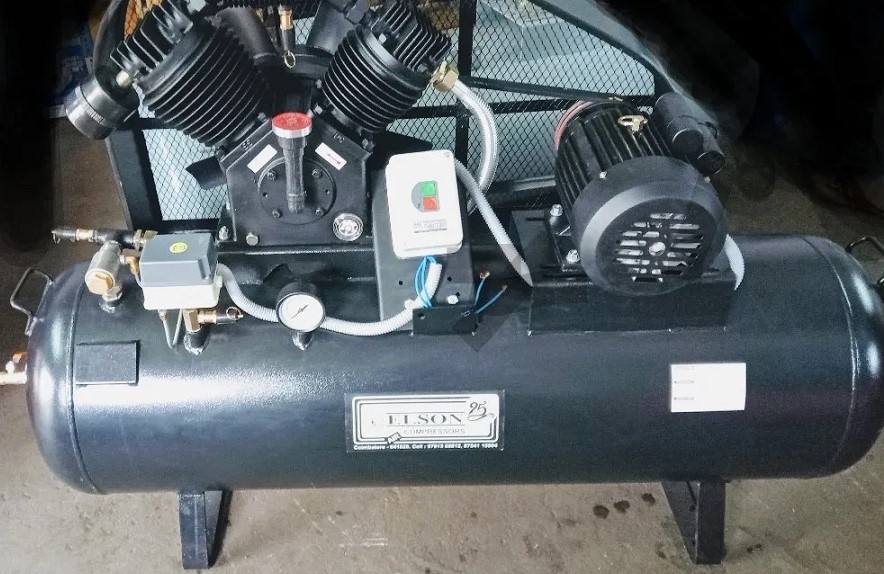
Low pressure created by the air compressors
Low pressure may be the cause of the issue. The air compressor may have some air buildup, or it may be completely airless.
As an alternative, the low pressure might reach a certain psi value and then stabilize there.
Possible causes of tank pressure include:
- failing the air intake valve
- faulty pressure switch
- failed gasket
- leaky piston seals
- broken tank check valve
The issue is typically resolved by checking these components and replacing any that are worn out or damaged.
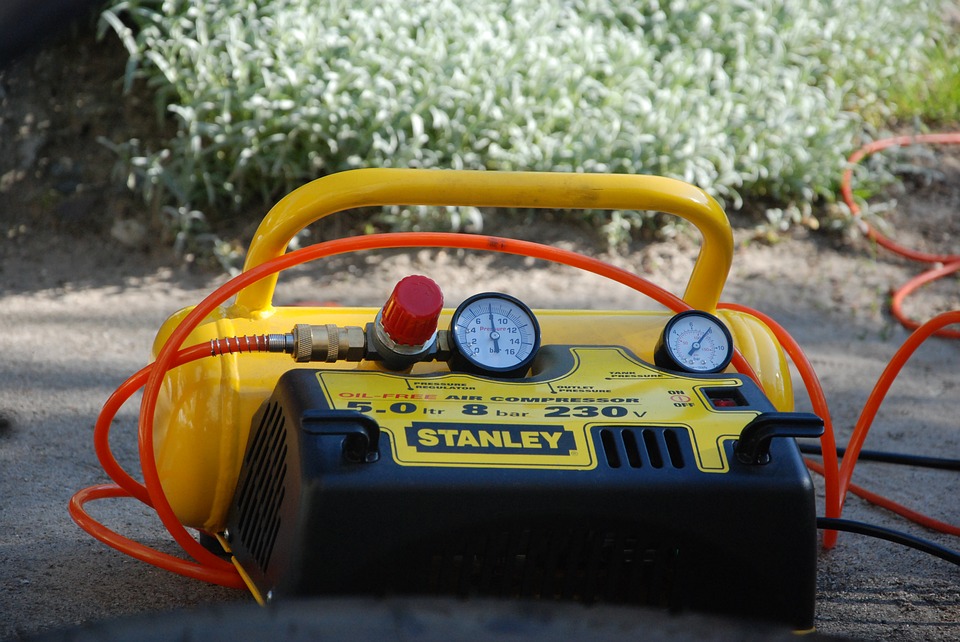
FAQs
What can cause an air compressor to stop working?
Simply put, an almost empty oil tank could be the cause of your air compressor’s malfunction.
If the pressure switch and the internal circuitry are not in contact, the air compressor might not turn on. The pressure switch may need to be adjusted to fix this.
As usual, a reset button is inside the air compressor. The button is typically small and red.
How do I know if my air compressor motor is bad?
Your compressed air units shouldn’t make any noises that are described as clanging, clicking, ticking, rumbling, or rattling. This could indicate a variety of different problems, including electrical or motor-related issues.
For example, the pistons themselves could be the issue. You will hear a lot of noise if a piston from an air compressor strikes a valve plate. Examine the piston for debris or dirt, replace the head gasket, and reinstall the head after it has been cleaned.
What causes the compressor to leak?
The most frequent reason for leaks is wear and tear of your system’s rubber components.
Final thoughts
An air compressor is a powerful machine that is used by everyone in today’s high-tech world, from auto mechanics to furniture makers, as well as both big and small manufacturers.
Using oil too quickly could be due to leakage, worn piston rings, excessive oil, or reduced air intake due to a dirty air filter. Whether there is a problem with the engine, the supply of lubricant, or the low pressure, the air compressor problems need to be resolved before it becomes expensive to repair.
If you’ve tried all the troubleshooting steps for your air compressor, then it might be time to call compressor service. Also, keep in mind that preventive maintenance can help resolve common air compressor issues before they occur.
Read More: About Air Compressor Trouble Shooting Guide

